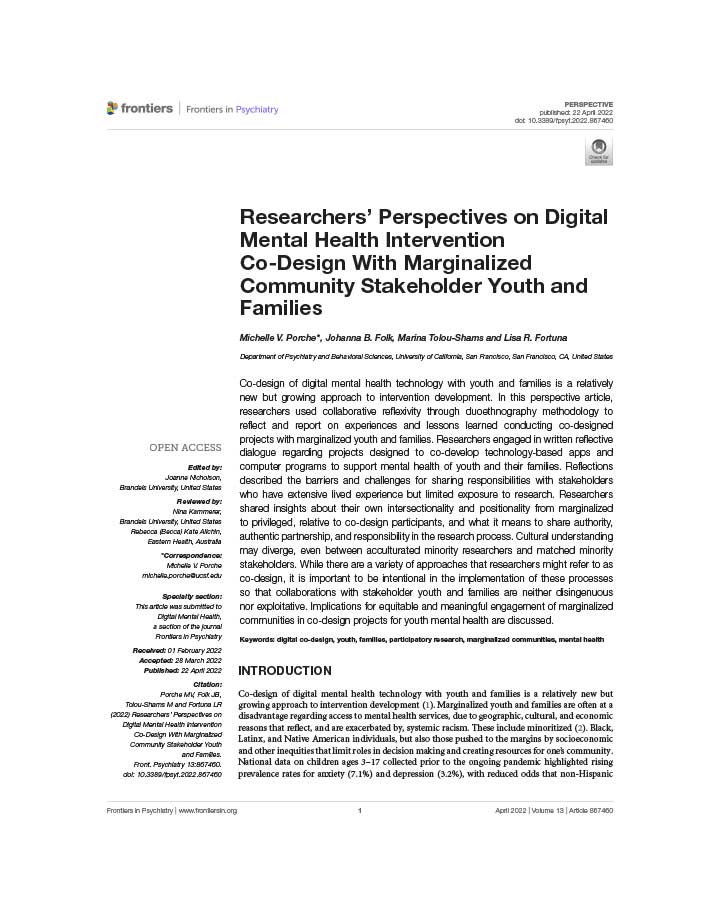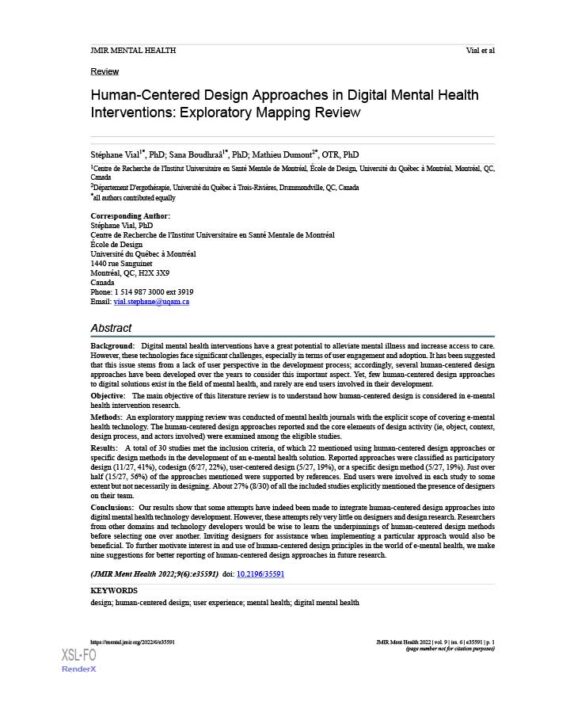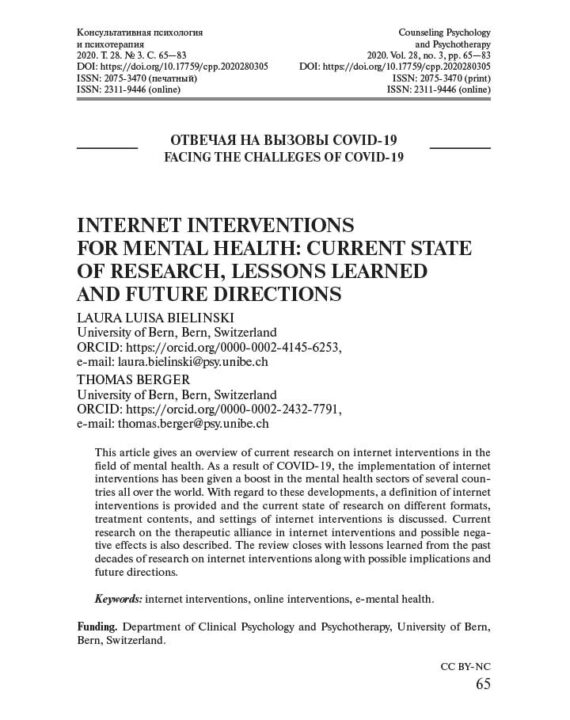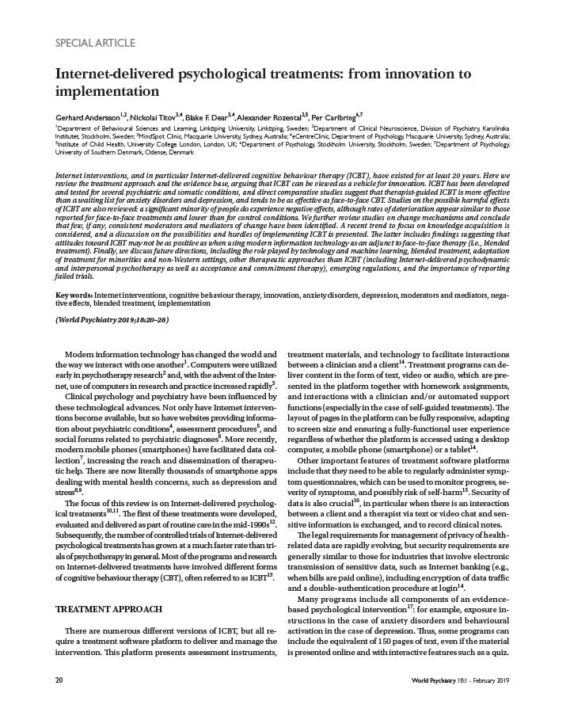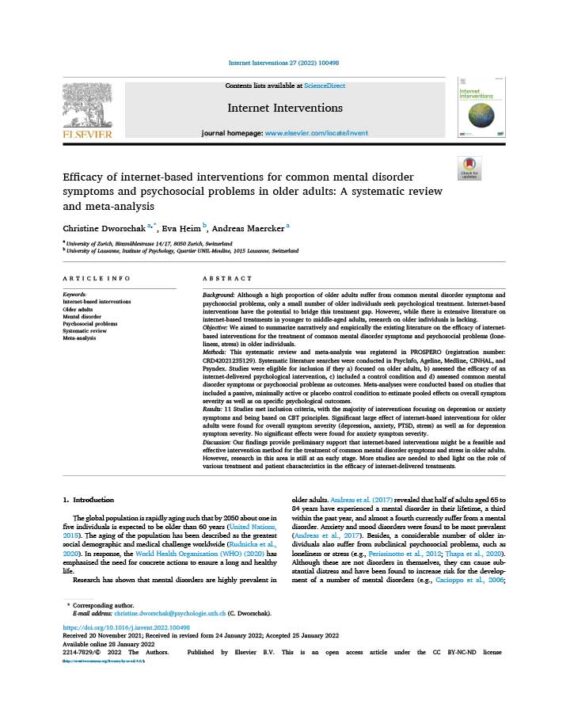In this perspective article, researchers used collaborative reflexivity through duoethnography methodology to reflect and report on experiences and lessons learned conducting co-designed projects with marginalized youth and families. Reflections described the barriers and challenges for sharing responsibilities with stakeholders who have extensive lived experience but limited exposure to research. Implications for equitable and meaningful engagement of marginalized communities in co-design projects for youth mental health are discussed.
information
Researchers’ Perspectives on Digital Mental Health Intervention Co-Design With Marginalized Community Stakeholder Youth and Families
Information
English
2024
pdf
Translations
No translations available


